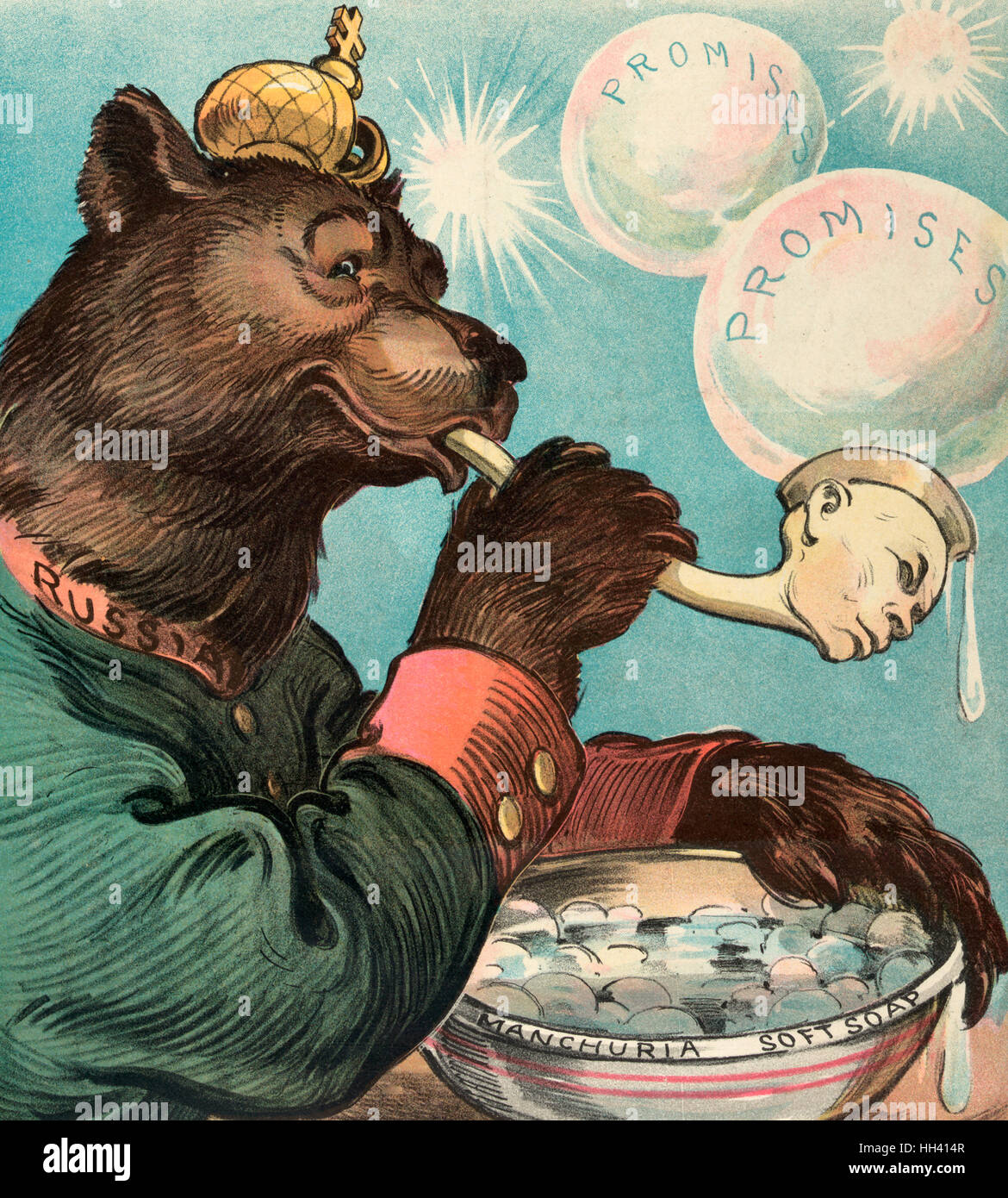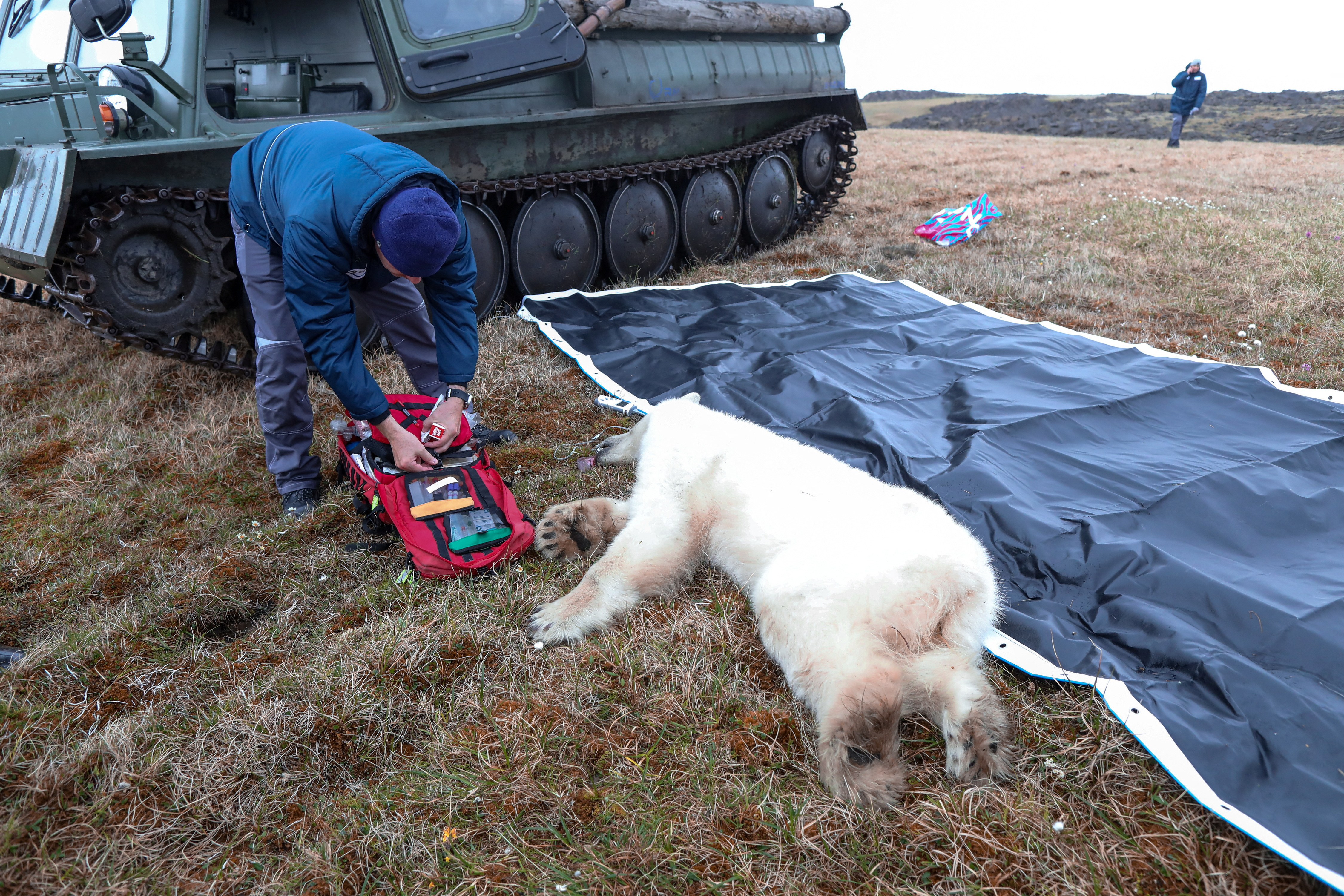Russian Military Bear - Polish soldiers freed from Soviet captivity during World War II received a unique and memorable reward: the month of Wojtek.
In the early stages of World War II, Poland was occupied by both Nazi Germany and Soviet Russia. British pressure on the Soviets would lead to the release of many of these troops, creating the Free Polish Army. Despite serving on many difficult and visible fronts during the war, there is another reason why the Polish Armed Forces are so fondly remembered: they are the only military to have a bear registered as an enlisted soldier and soldier. Wojtek, a Syrian brown bear, would accompany the Polish forces during their wartime operations. Not just a mascot, Wojtek the bear was registered and even saw active duty in Italy and made a name for himself in the process. After the end of the war, this bear is perhaps the most recognizable symbol of the Polish armed forces, more than anyone else.
Russian Military Bear

Nazi Germany occupied Poland on September 1, 1939, beginning World War II. Although Poland was allied with Britain and France, the Soviet Union would invade two weeks later, on September 17. The Soviet Union effectively joined the Nazi regime without even declaring war, dividing Poland between the two powers, much to the contempt of their allies in Britain and France. After the invasion, tens of thousands of Polish officers, soldiers and political prisoners were killed in the Katyn massacre, and hundreds of thousands of other civilians were deported to kulaks and prison camps in the Soviet Union.
Russian Soldiers Bear Blue Beret Airborne Stock Vector (royalty Free) 417726832
This quickly became a major point of diplomatic tension. The Polish government-in-exile moved to England and blamed the Soviets for invading and occupying Polish territory. Although initially reluctant to cooperate, the German invasion in the summer of 1941 dramatically changed the power dynamic between the Allies. Stalin's regime soon succumbed to diplomatic pressure as the Soviets quickly lost ground and sought British aid in the form of Lend-Aid. He canceled the previous annexation of Polish lands, which would have freed the majority of Polish citizens.
It was also agreed that the freedmen would be assigned to military units supplied by Britain or the Soviet Union, and serve on the Allied front if necessary, but with some measure of government control. exile, even while operating within existing Allied command structures.
This army was formed under the command of the recently departed Władysław Anders and is commonly known as "Anders' Army". Defeated on all fronts, it soon became apparent that the Soviets could not provide enough supplies to equip or feed the newly liberated Poles of about 100,000. , a path became available for the Poles. It was agreed that they would be transferred from the Soviet Union, the Middle East and under British command. During the journey they would lose countless soldiers and civilians to starvation and exhaustion, but at the same time they would gain a member who would soon become a famous figure.
Wojtek met his new family in the western Iranian city of Hamadan. A baby Syrian brown bear, found by a boy who hunters believed killed his mother, was taken to the town's train station, as were many traders and vendors hoping to profit from passing soldiers. The young niece of one of the Polish officers targeted the bear when she was a baby, and the girl was taken into care after the Poles moved her to a temporary refugee camp in Tehran. The young woman nursed the child for three months before being assigned to a branch of the Polish Artillery Supply Corps. Here he was eventually nicknamed Wojtek, a Polish nickname of Wojciech, meaning "lucky warrior".
Kamchatka, Brown Bears, And Volcanos On The Far Side Of The Earth — Destination: Wildlife™
Wojtek's life in the army would rather be reflected in his upbringing, as much of the food served was similar to what soldiers ate. Proving that the military wasn't the best environment for a young, impressionable youngster like Wojtek, the bear quickly grew into three staples of beer, cigars (smoked or smoked), breakfast coffee, and soldiers. well known all over the world.
Wojtek's upbringing continued to define his soldier's life. He grew up very fast and soon grew up to have fun fighting with the soldiers. Special attention was paid to his well-being. However, he continued to imitate his smoking habit with the soldiers around him, even walking on his hind legs with other soldiers. Popular with civilians and soldiers alike, Wojtek quickly became the symbol of the 22nd Artillery Supply Company, which was assigned to the British-led Polish II Corps.
After the German-Soviet invasion, the Polish people and army were disbanded. Although most of the Polish pilots and ground crew were evacuated along with most of the Polish Navy, the ground forces were not so lucky. As mentioned earlier, the majority of Polish soldiers and civilians were recruited by the Soviets. Others managed to escape to France and were soon drafted into the Polish Army in France, also known as "Sikorski's Army" after its commander, Władysław Sikorski.

Peaking at around 84,500, they would fight in the Battle of France in 1940 with between 25,000 and 35,000 escaping to England and redeploying. The Polish forces in the West consisted of soldiers who had defected to England, and Anders' army was massed in the Soviet Union. Together, these soldiers formed the only loyal Polish troops serving the government-in-exile. In contrast, all subsequent Polish troops in the Soviet Union were nothing more than puppets of the communist regime.
Feeding The Bear: A Closer Look At Russian Army Logistics And The Fait Accompli
In 1942, the 3rd Carpathian Division was formed in North Africa, consisting of Polish units that had escaped Poland during the invasion by Romania. The force served in the North African Campaign from 1941 as part of the British Eighth Army taking part in the Battle of Tobruk. The Polish II Corps was formed in 1943, because it was so difficult to divide Anders' army to join the war. The newly formed II Corps, stationed in Egypt for the winter, would not miss the Allied invasion of Italy as it had been. became an independent entity.
Finally, in early 1944, Wojtek's unit, the 22nd Artillery Supply Company, was transferred to Italy along with the rest of the Polish II Corps. There was just one problem: UK rules prohibited riding on mascots and stuffed animals. Instead of abandoning their beloved Wojtek, the Poles broke this rule and enlisted him in a private unit designated as a soldier. By all accounts, Wojtek was now an active-duty conscript soldier.
Arriving in Italy, the Poles soon took part in the Battle of Monte Cassino, one of the toughest battles of the war. The Allies attempted to break through the German lines at Cassino within four months. They had been attacked three times before.
Arriving in Italy, Wojtek was now considered a real part of the corps. He was given his own serial number and book of accounts, which was mainly used for food expenses. He was not just a mascot, he slept in tents and even helped his fellow soldiers with their duties. By this time he had grown considerably and weighed somewhere in the neighborhood of 90 kilograms or nearly 200 pounds of lean muscle. This enabled Wojtek to carry all numbers of artillery shells and to transport and store 45 kg of artillery pieces. As a result, the Poles were the first Allied force to break the stalemate at Monte Cassino, and II Corps led the besieged and ruined monastery. For his service in the war, Wojtek was not only promoted to the rank of corporal, but the bear carrying an artillery shell was adopted as the official emblem of the 22nd Artillery Supply Company.
Spanish Police Guide Bear Back From City Centre To Mountains
The Battle of Monte Cassino would prove to be a turning point for the Polish II Corps, as even support and logistics units were forced to line up to keep up the pressure on the German lines. However, this undoubtedly includes Wojtek. By this time, the Soviet Union had severed diplomatic relations with the legitimate Polish government-in-exile. This is it
Post A Comment:
0 comments so far,add yours